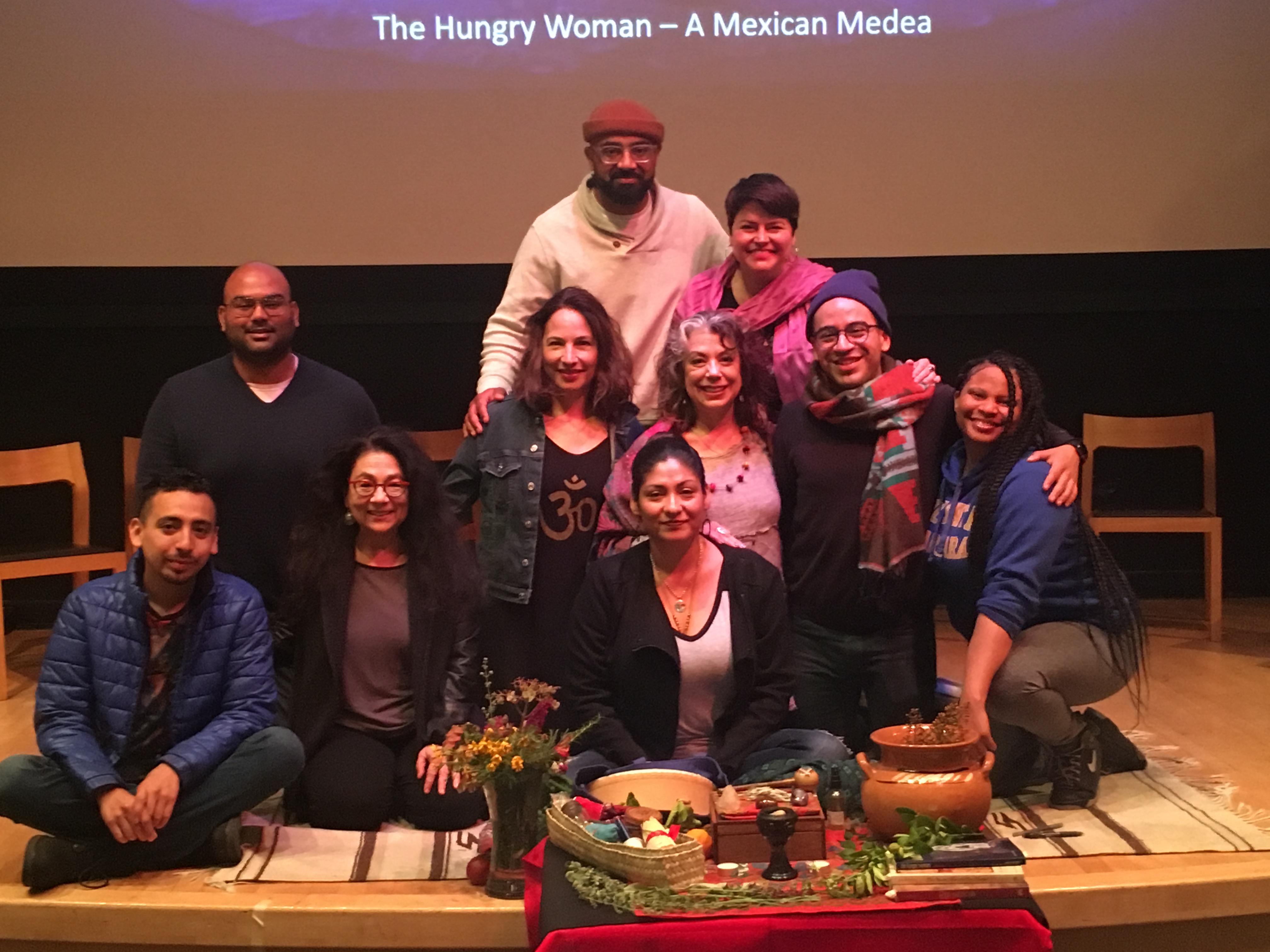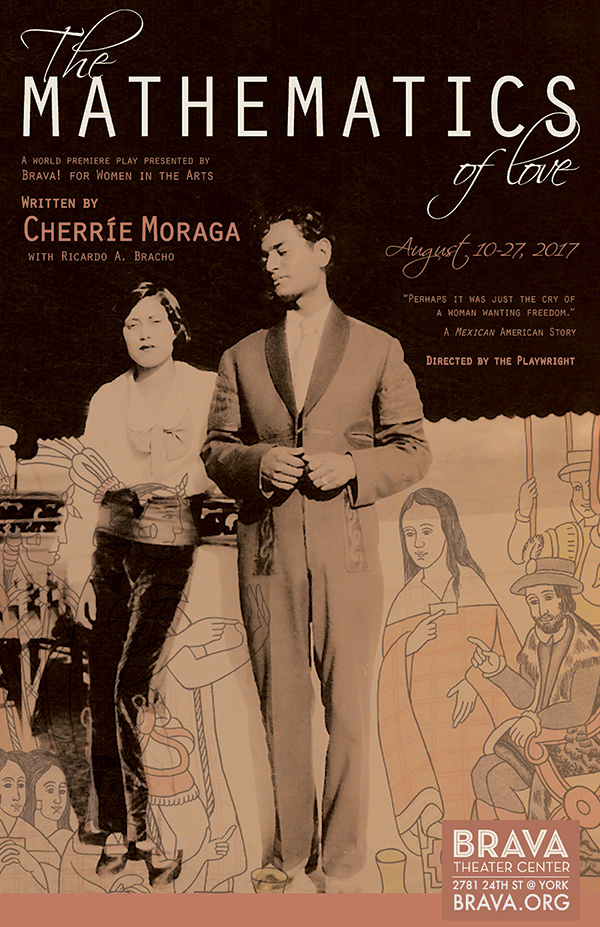Theater

From left to right: Quique Sánchez Pizano, Humberto Avila, Chela Sandoval, Cristina Frías, Rose Portillo, Moises Castro, & Dianna Redd; back center: Luis Duarte & Micaela Díaz Sánchez; front center: Marlene Beltrán Cuauhtin.
Recent Presentation
Staged Reading
May 31 and June 1, 2019
Multicultural Center
UC Santa Barbara
In "The Hungry Woman," an apocalyptic play written at the end of the millennium, Moraga uses mythology and an intimate realism to describe the embattled position of Chicanos and Chicanas, not only in the United States but in relation to one another. Drawing from the Greek Medea and the Mexican myth of La Llorona, she portrays a woman gone mad in the struggle between her longing for another woman and for the Indian nation denied to her.



"Mathematics of Love" takes place in the lobby of the Biltmore Hotel at the turn of this century in Los Angeles. The main character is "PEACHES", an aging and early-staged Alzheimer Mexican woman who, along with her Anglo husband, POPPA, is awaiting the arrival of their out-of-town son, "God." He is to throw an anniversary party for them the following day. In the interim, while they wait (the play takes place over one afternoon until dawn the next day), the couple's middle-aged DAUGHTER mediates between the opposing characters of her parents, while mourning the recent death of her beloved partner, Virginia. PEACHES reviews the major traumas of her life -- the betrayals from family members (as she perceives them) and an emotionally absent husband. She is pretty much stuck in the current biography of her life, until the character of MALINXE arrives to shed some light on PEACHES' past through a grander historical lens. (Malinche Tenepal was the Indigenous slave who was given to the Spanish Conquistador, Hernan Cortez upon his arrival in Mexico in 1519. She became his mistress, translator and tactical advisor and, although a slave, is historically considered a traitor to Indigenous Mexico.)

Ceremony and performance at once, New Fire follows one woman’s nightscape journeying upon the eve of her 52nd birthday, NEW FIRE is a contemporary story about getting and staying ‘well’ in an amnesiac America. Along the way, she encounters tricksters and allies of every ilk to act as her guides on a road to re-membering a stolen past. Humorous antics interwoven with the dramatic, both mythological and mundane, NEW FIRE impels us to wonder of the place of the sacred in our lives and its correspondence to human acts of violence. The play serves as a living reminder of a more balanced cosmos, where the female once held place among the gods.


Prison Correspondence between Poet and Pervert
This is in many ways a 'throw back' piece, or better yet, a 'throw away,' buried into some mexicano’s backyard, until somebody’s ready to dig up the dirt for reals.
Aside from several well-publicized facts related to the murder of crossover Latin Music artist, Sirena Cantante, I made most everything else up and use the events simply as the point of departure for my own reflections on the subject of violence against and among Chicanas. My own story, with its own trajedias, is in here too (twisted as it is) to make a case for how hard it is, and how hard we do, love one another. – “The Poet”
Images: http://blog.calarts.edu/2010/08/03/breath-of-fire-presents-digging-up-the-dirt/
Additional Plays
For a more inclusive list of Moraga plays and productions, see her C.V.
